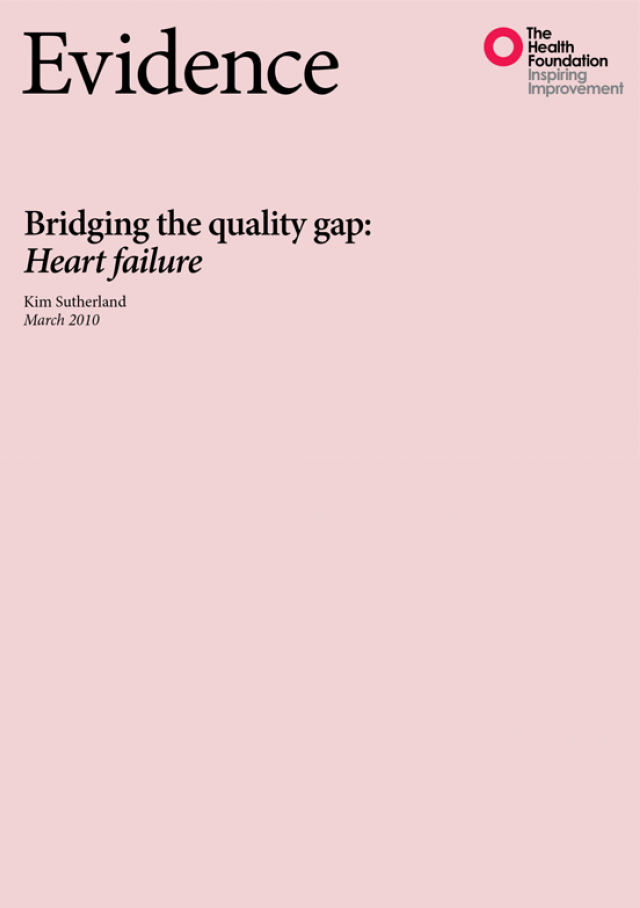Bridging the quality gap: Heart failure
March 2010

Key points
- Heart failure survival rates are improving and waiting times for diagnostic tests are falling. However, heart failure services in England still lag behind their international counterparts.
- Heart failure monitoring services are not meeting guideline requirements.
- Waiting times for echocardiography (ECG) have fallen dramatically since 2006.
- Hospital admissions for heart failure patients are relatively fewer than comparator countries. However, once admitted, heart failure patients stay longer in hospital.
- A minority of heart failure patients are admitted to cardiology wards in England, but those admitted to specialist units receive higher quality care.
- Recent decades have seen an overall decline in mortality from coronary heart disease but, as heart failure occurs predominantly in older people, the number of patients with heart failure is increasing as the population ages.
- Better identification and treatment of everyone with heart failure would reduce the numbers of avoidable deaths and result in an increase in quality-adjusted life-years.
- There are relatively low levels of compliance with evidence-based guidelines.
- Very few heart failure patients receive cardiac rehabilitation.
This report provides a comprehensive review of existing heart failure care by assessing quality in six domains: effectiveness, access and timeliness, capacity, safety, patient centredness and equity. It also captures the international evidence on what works to improve care, and assesses the value for money of different interventions.
Heart failure is a debilitating long-term condition affecting around 900,000 people in the UK and costing the NHS approximately £625 million each year. Heart failure is the only major cardiovascular condition that has become more prevalent in recent decades. It is responsible for dramatically reducing quality of life and carries a poor prognosis for patients, who understandably associate heart failure with an inevitable downward spiral.
The evidence in this report suggests that prevention improves patient outcomes and is the most cost-effective intervention. The economic analysis shows considerable gains from better identification and treatment of individuals with heart failure. Given this, the Health Foundation would welcome more strategic attention to be paid to heart failure, particularly around prevention and screening.
Work with us
We look for talented and passionate individuals as everyone at the Health Foundation has an important role to play.
View current vacanciesThe Q community
Q is an initiative connecting people with improvement expertise across the UK.
Find out more

